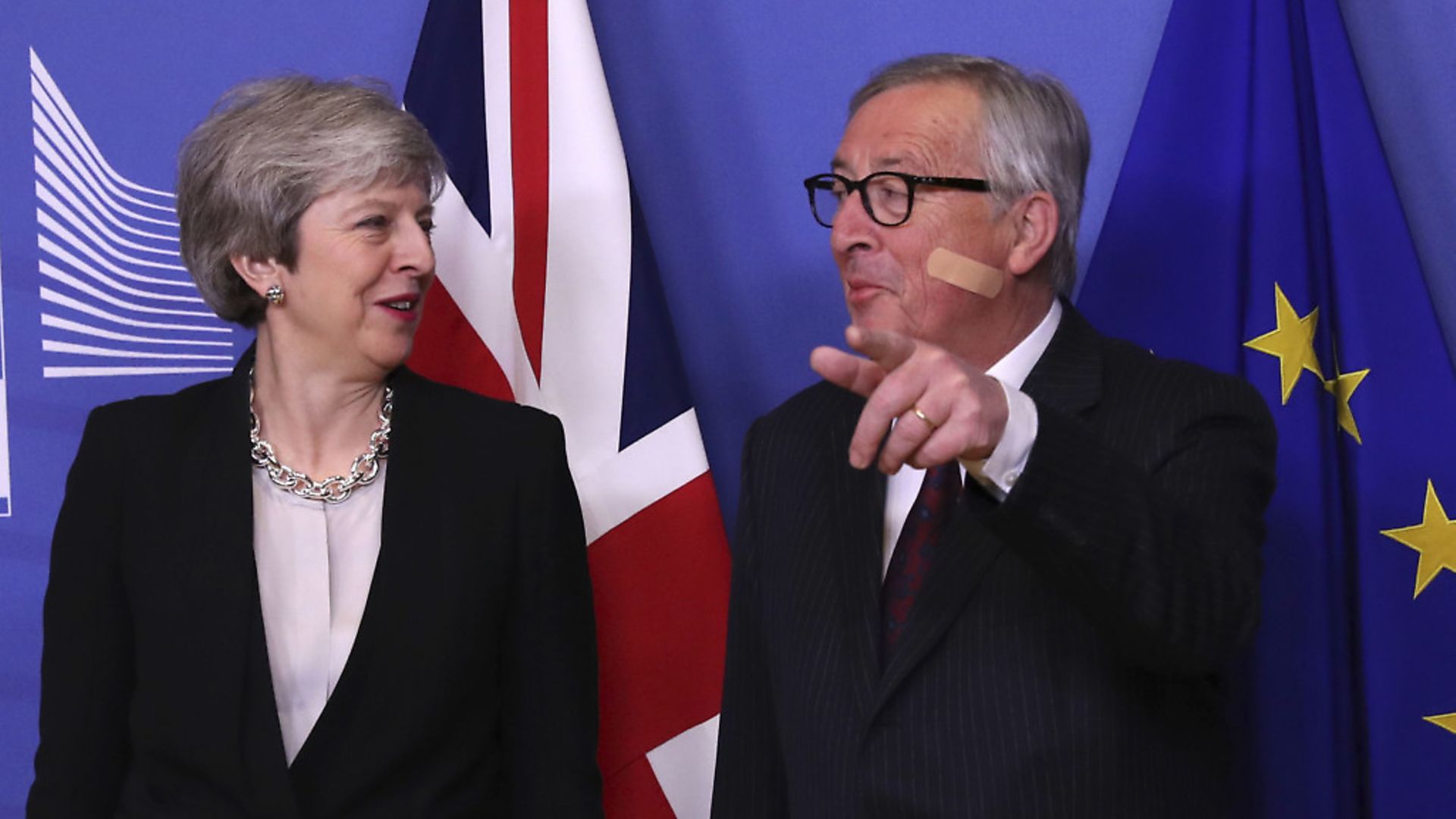
Theresa May is returning to Brussels to seek legal assurances on the Brexit backstop, amid signs she has persuaded Tory Brexiteers to consider backing her Withdrawal Agreement.
Chancellor Philip Hammond indicated that the government has accepted the EU will not agree to replace the backstop arrangements for the Irish border with technological alternatives in time for the scheduled date of Brexit on March 29.
But he said he hopes the technological solution contained in the so-called Malthouse Compromise will form part of negotiations over the following 21 months on the UK’s future relationship with the EU.
After being briefed on developments in private talks with the PM, leading Brexiteers Jacob Rees-Mogg and Steve Baker appeared happy with this arrangement, declaring that the Malthouse proposals were ‘alive and kicking’.
Baker said it was now possible that Tory eurosceptics in the influential European Research Group, of which he is deputy chair, would back May’s Withdrawal Agreement, after helping to vote it down by a massive margin last month.
‘I’m hopeful that as the conversation moves forward with the EU and with the UK that we might get to a position where we can vote for the Withdrawal Agreement,’ said Baker.
‘It’s a very big journey from here to there. I’m very grateful that today we took a big step on that journey by the general acceptance that these arrangements could work.’
In a joint statement, Baker and ERG chair Rees-Mogg said: ‘We look forward to further precision about exactly what we will be asked to vote for.’
Hammond told the MakeUK dinner in London that the proposals in the Malthouse plan – drawn up by MPs from the Leave and Remain wings of the party – represented a ‘valuable effort’ at finding a way to keep the Irish border open after Brexit without a backstop.
But the chancellor said: ‘However promising as an alternative arrangement to avoid entering a backstop in the future, it is clear that the EU will not consider replacing the backstop with such an alternative arrangement now in order to address our immediate challenge.
‘The details of this initiative are still evolving and would require significant changes to EU legislation and customs practices that would need to be negotiated with the EU member states and others who will be affected by them.’
He added: ‘It should be a major ongoing strand of our work, continuing at pace during the Implementation Period – one in which I hope and expect the EU will take an active part.’
The developments came as May prepared for a crucial meeting with European Commission president Jean-Claude Juncker in Brussels.
Juncker has said that he does not expect a ‘breakthrough’ in talks at which May is expected to request legally-binding assurances that the backstop will not extend indefinitely.
She believes that this is the key to winning the support of the House of Commons for her deal, and seeing off efforts to extend the negotiation period in a series of votes expected on February 27.
Best for Britain supporter Ian Murray MP said the government were ‘chasing unicorns’ in a bid ‘to appease hardline backbenchers.’
‘The EU won’t grant any substantial changes to the backstop and a few wishy washy legal statements won’t please the ERG extremists.
‘This nonsense is all part of the government’s game to run down the clock. Parliament must act now to remove no-deal, and thereby take the government’s blackmailing weapon away.’
Warning: Illegal string offset 'link_id' in /mnt/storage/stage/www/wp-includes/bookmark.php on line 357
Notice: Trying to get property 'link_id' of non-object in /mnt/storage/stage/www/wp-includes/bookmark.php on line 37






